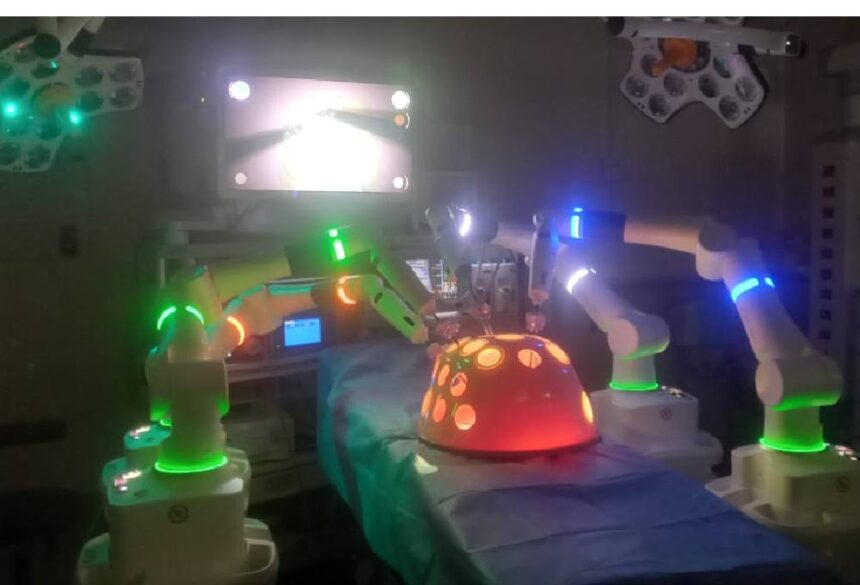The launch of the Versius Surgical Robotics System at Universitas Academic Hospital in Bloemfontein has marked a significant milestone in medical innovation in South Africa. This state-of-the-art robotics system is the first of its kind in Southern Africa and is set to revolutionize minimally invasive surgeries.
According to Professor Freddie Claassen, head of urology at Universitas Hospital and the University of the Free State, the Versius system integrates cutting-edge robotic technology that allows surgeons to perform procedures with enhanced precision, reduced risk, and quicker recovery times. This advancement is expected to transform surgeries across multiple specialities and elevate the healthcare system in the country.
Not only will patients benefit from improved outcomes such as shorter hospital stays, fewer complications, and quicker recoveries, but surgeons will also experience advantages from enhanced visual and tactile feedback during operations. Dr. Rebecca Fourie, a surgeon, shared that the robotics system will significantly reduce operation times, allowing procedures to be completed more efficiently.
Free State Premier Maqueen Letsoha-Mathae praised the system as a catalyst for expanding access to care, especially as the country moves towards implementing National Health Insurance. The introduction of the robotics system is timely and holds promise for improving patient care and outcomes.
Operations using the robotics system are set to commence this week, with cancer patient David Mohlobatsie expressing hope that this technology will provide him and others with a new lease on life. The MEC of Health in Free State, Viceroy Mahlatsi, emphasized the importance of training more surgeons to operate the system to ensure that as many patients as possible receive the benefits of this advanced medical technology at Universitas Hospital.
In conclusion, the introduction of the Versius Surgical Robotics System at Universitas Academic Hospital represents a significant step forward in medical technology in South Africa. The system’s capabilities are poised to enhance patient care, improve surgical outcomes, and position the country as a leader in the development of advanced medical technologies in the region.








